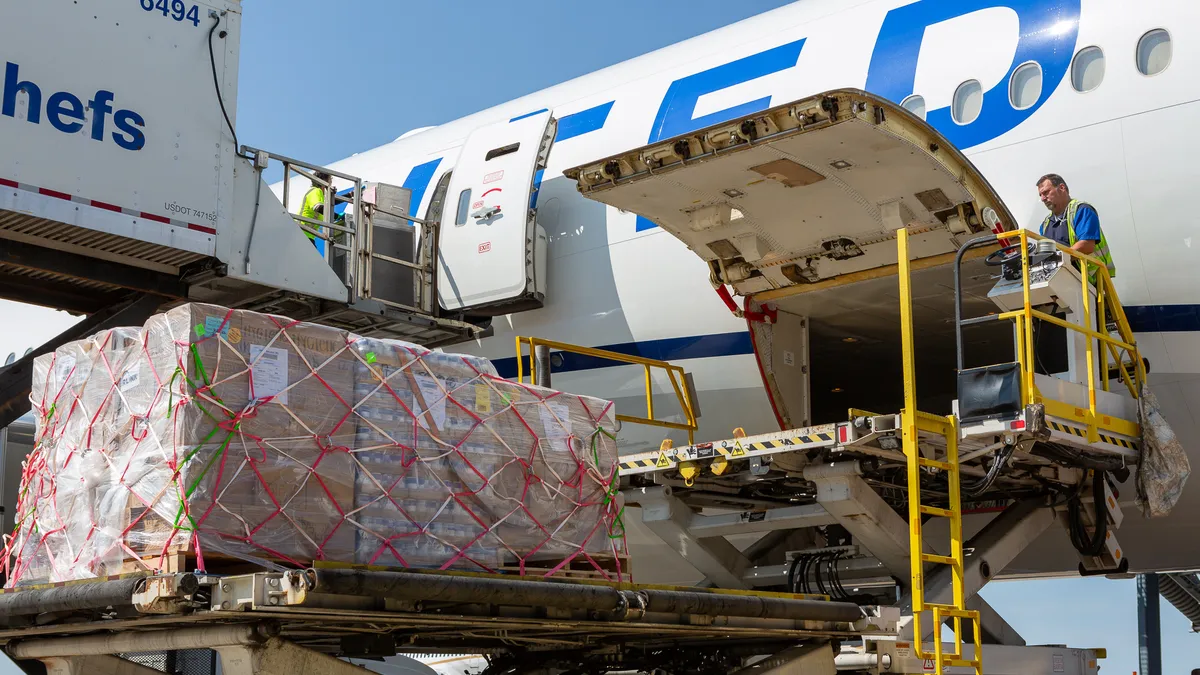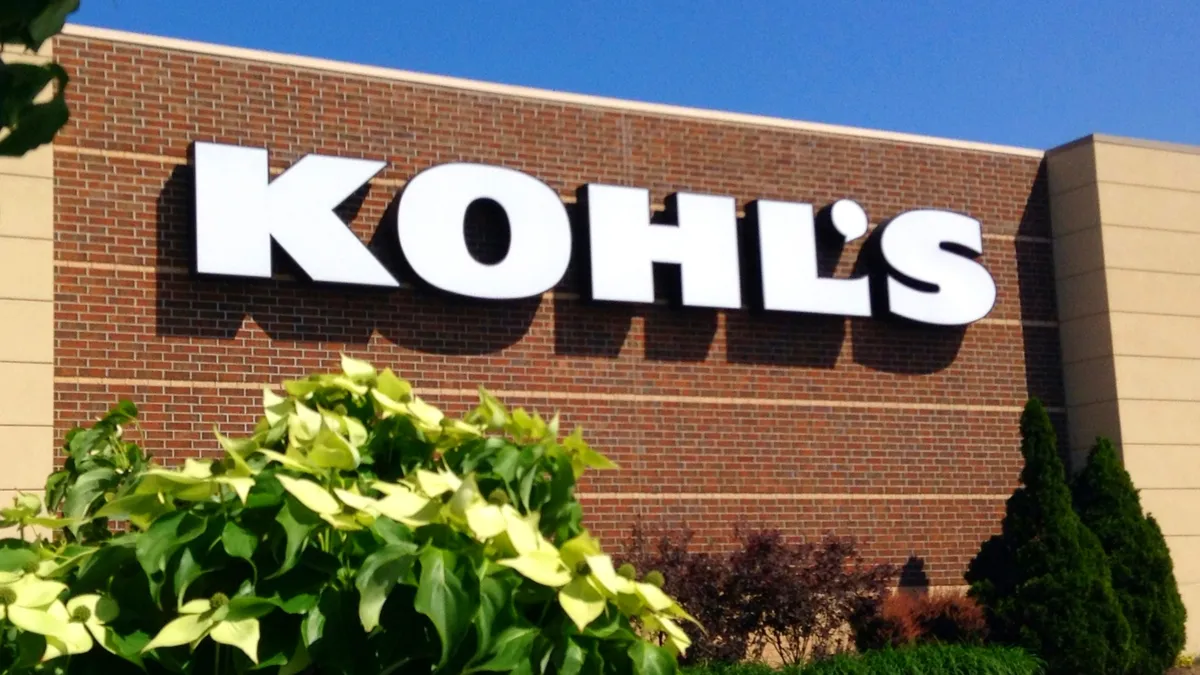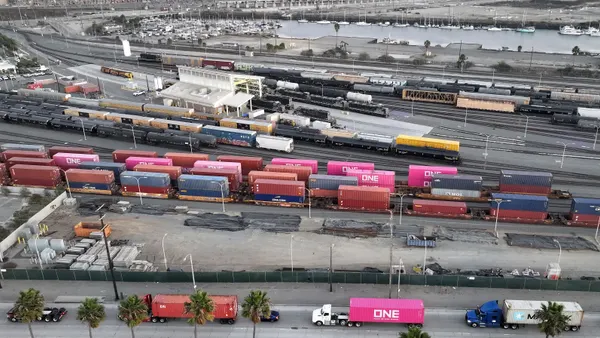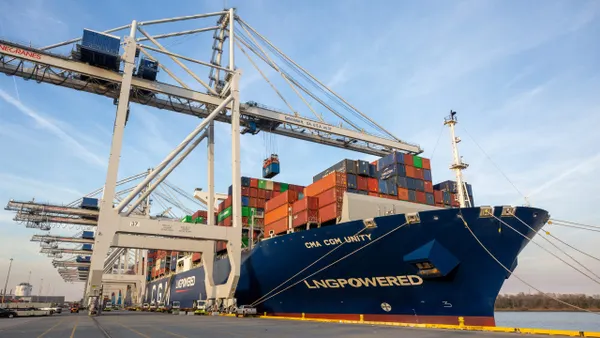Dive Brief:
- Ocean carriers must "impose significantly higher fuel surcharges in 2019 and beyond" in order to maintain margins and cope with costs of low-sulfur regulations from the International Maritime Organization coming in 2020, according to a study by consulting firm AlixPartners.
- The firm estimated the container shipping industry needs to offset $10 billion in "incremental" costs starting Jan. 1, 2020. Carriers operating Asia-Europe routes would need to increase surcharges by 40%, and those on Asia-Americas routes would need to increase fees by 33%, to maintain their financial standing, the study estimates.
- "If tight supplies of LSFO (low-sulfur fuel oil) trigger higher prices, fuel costs could climb even higher, making the difficult task of cost recovery even more urgent," AlixPartners said.
Dive Insight:
"This year, to say the least, is going to be a turbulent year for the container-shipping industry," Esben Christensen, global co-leader of the Transportation and Infrastructure practice at AlixPartners and a managing director at the firm, said in a press release announcing the study.
Last year, carriers began to announce fuel surcharges related to IMO 2020, much to the chagrin of shippers. Many of the surcharges took effect at the beginning of 2019, a year ahead of the low-sulfur deadline, in order to offset costs of preparation for carriers.
IMO 2020 may present the most immediate costs for carriers to tackle, but ongoing financial strife and trade uncertainty will contribute to a tough 2019 for ocean carriers.
The ocean shipping industry, despite a wave of consolidation, continues to struggle financially. The Altman Z-score measures credit strength and bankruptcy risk, and a score of 1.8 or lower indicates high risk of bankruptcy. The aggregate Z-score of 14 ocean carriers fell below 1.8 from 2011 to 2017, reaching a low of 1.24 in 2016, the year Hanjin filed for bankruptcy.
Although the score rebounded to 2.02 last year, "it’s a reminder that the industry remains under serious financial strain," AlixPartners wrote in the study.
Carriers enjoyed a boost on transpacific routes in the latter half of 2018 when U.S. companies rushed in goods ahead of tariffs. Demand is beginning to soften on the route and could soon return to "more-normal levels," the report said. In fact, AlixPartners said shippers booking China to U.S. West Coast routes may benefit from waiting to lock in contract routes until the tariff rush subsides.
Future trade uncertainty does not bode well for ocean carriers. Maersk expects weakness, particularly in China and Europe, and the container line projected soft growth for this year.
Given the ongoing financial strain to ocean carriers, "shippers can expect pressure from carriers seeking to recover their added fuel costs and improve profitability," the study said.














